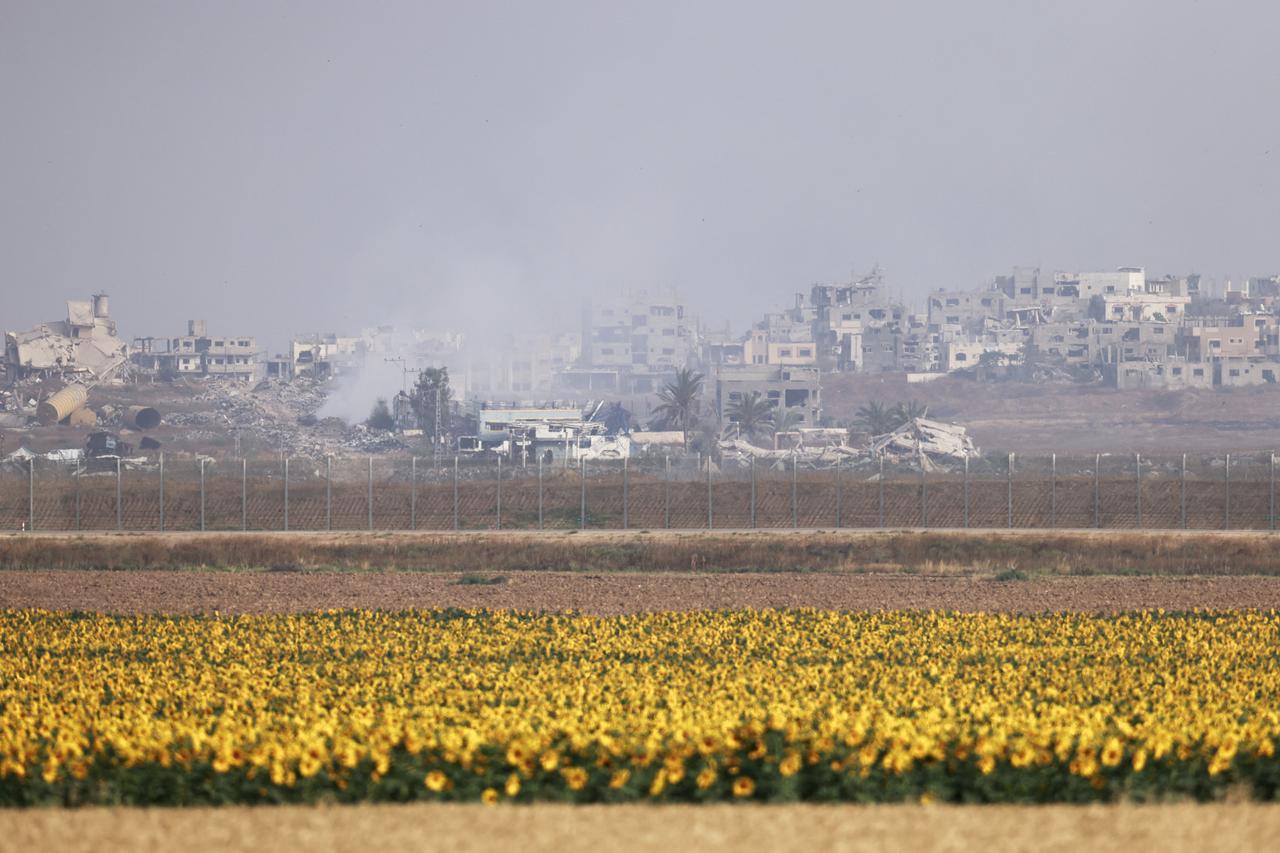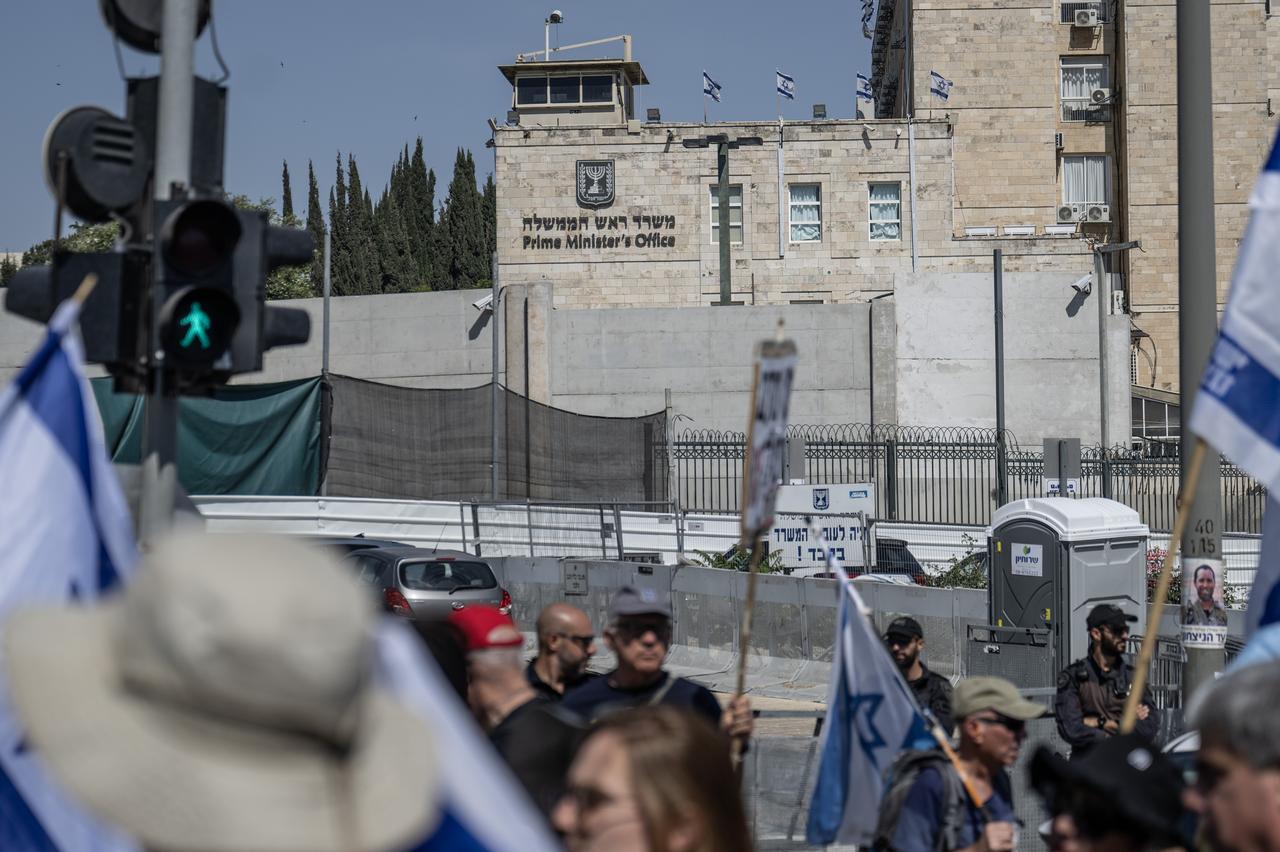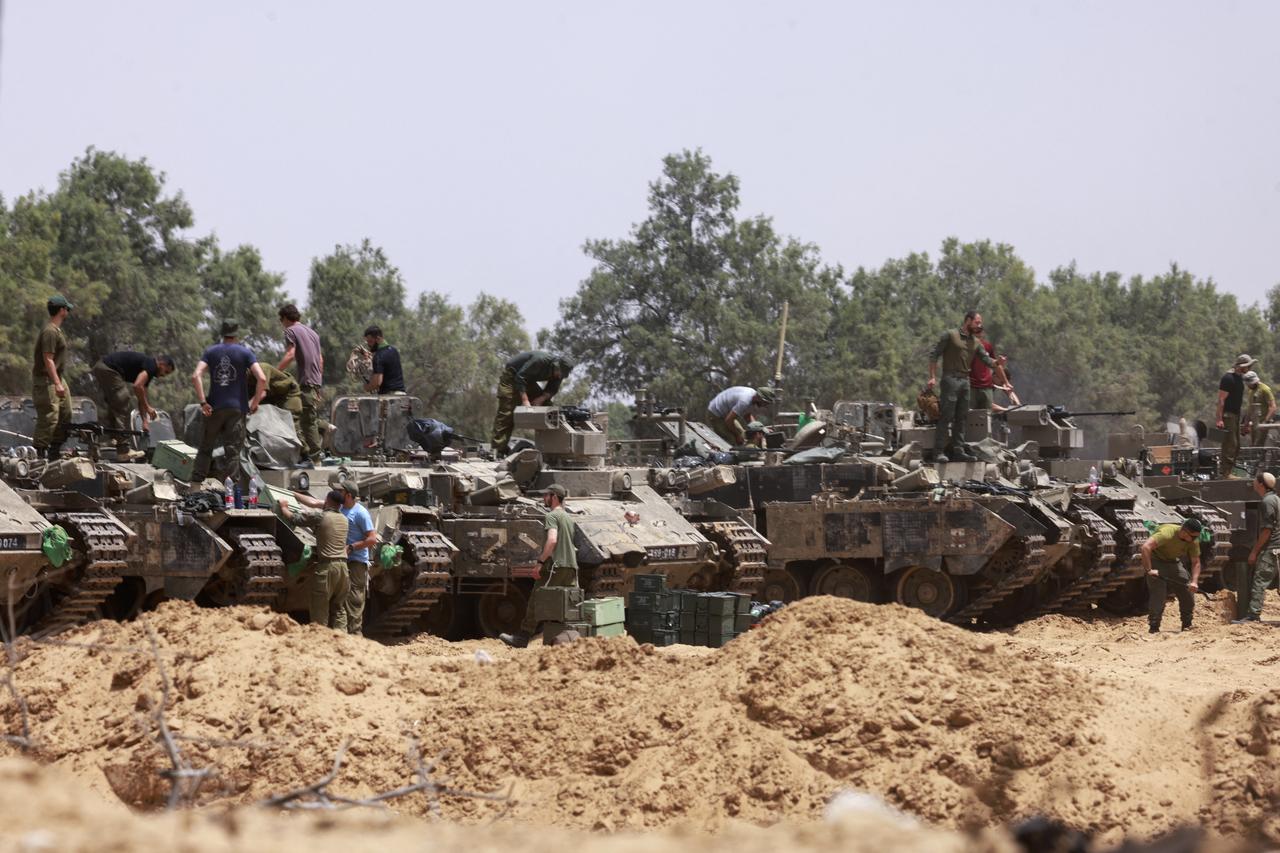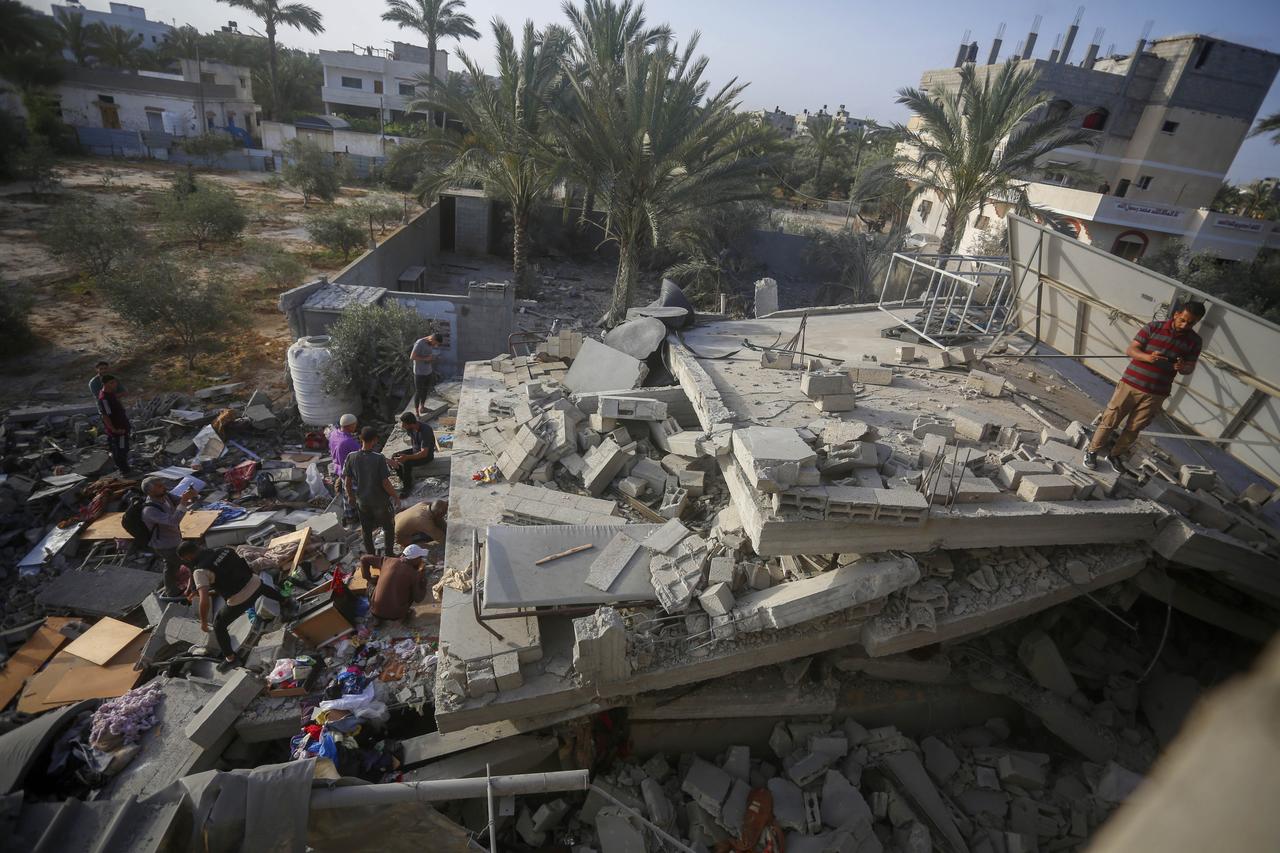
Israel will allow a "basic amount" of food into the Gaza Strip, Prime Minister Benjamin Netanyahu's office announced Sunday, following mounting international pressure to lift the total blockade imposed more than two months ago.
The decision comes as Israel intensifies its military campaign in Gaza, with troops beginning "extensive ground operations" across northern and southern parts of the enclave under a newly launched offensive called "Operation Gideon's Chariots."
"At the recommendation of the Israeli army, and out of the operational need to enable the expansion of intense fighting to defeat Hamas, Israel will authorize the entry of a basic amount of food for the population to ensure that a hunger crisis does not develop in the Gaza Strip," Netanyahu's office said in a statement.

According to Israeli state broadcaster KAN, the decision to immediately resume humanitarian aid deliveries was made due to political pressure from the United States and European countries. The security cabinet reportedly approved the measure without a vote, overriding objections from far-right ministers Itamar Ben-Gvir and Bezalel Smotrich.
Ben-Gvir criticized the decision, stating, "While our hostages are in tunnels, any humanitarian aid entering the Strip will absolutely feed Hamas and give it oxygen." He accused Netanyahu of making a mistake.
Israeli news site Walla reported that aid will be delivered through the United Nations and international organizations until May 24, after which Israel plans to implement its own aid distribution system.

US President Donald Trump acknowledged last week that "a lot of people are starving" in Gaza, adding, "we're going to get that taken care of." Following his Middle East tour, Trump indicated that developments regarding humanitarian aid to Gaza would occur in the coming days.
Israeli media suggested that the US had been pressuring Israel on both ceasefire discussions and allowing humanitarian aid access.
United Nations spokesperson Eri Kaneko confirmed that Israeli authorities had approached the UN to "resume limited aid delivery," adding that discussions about logistics are ongoing, given the conditions on the ground."
The Israeli military stated it had conducted a "preliminary wave" of strikes on more than 670 Hamas targets throughout Gaza over the past week to support the new ground operation. Israeli Defense Forces aim to achieve "operational control" in parts of the enclave.
Gaza's Health Ministry reported that at least 464 Palestinians were killed in the week leading up to Sunday, with Gaza Health Ministry spokesperson Khalil Al-Deqran telling Reuters, "Complete families were wiped off the civil registration record by [overnight] Israeli bombardment."
On the ground, Gaza civil defense spokesman Mahmud Bassal told AFP at least 50 people had been killed as of Sunday afternoon "as a result of ongoing Israeli air strikes since the early hours." He said 22 people died and at least 100 others were wounded in one attack on tents sheltering displaced Palestinians in Al-Mawasi in southern Gaza.

Netanyahu's statement noted that negotiators in Doha were "working to exhaust every possibility for a deal, whether according to the Witkoff framework or as part of ending the fighting." Steve Witkoff is the US Middle East envoy involved in the discussions.
A Hamas source familiar with the negotiations said the group was willing "to release all Israeli hostages in one batch, provided that a comprehensive and permanent ceasefire agreement is reached," but claimed Israel "wants to release its prisoners in one batch or in two batches in exchange for a temporary truce."
Israeli army chief Eyal Zamir told troops in Gaza on Sunday that the military would "provide flexibility to the political echelon to advance any hostage deal," adding, "A hostage deal is not a halt; it is an achievement. We are actively working toward it."

Marwan al-Hams, director of field hospitals at Gaza's health ministry, told AFP that since Israel's aid blockade began on March 2, "57 children have died in Gaza as a result of famine," warning the number could rise as supplies ran out. AFP noted it was not able to verify this figure independently.
The U.N. had warned of the risk of famine in Gaza even before the aid blockade was imposed.
Gaza's health ministry also accused Israel of besieging the Indonesian Hospital in Beit Lahia, cutting off access and "effectively forcing the hospital out of service," leaving northern Gaza without a functioning public hospital.
French Foreign Minister Jean-Noel Barrot called on Israel, following the latest announcement, to allow the "immediate, massive and unhampered" resumption of aid.